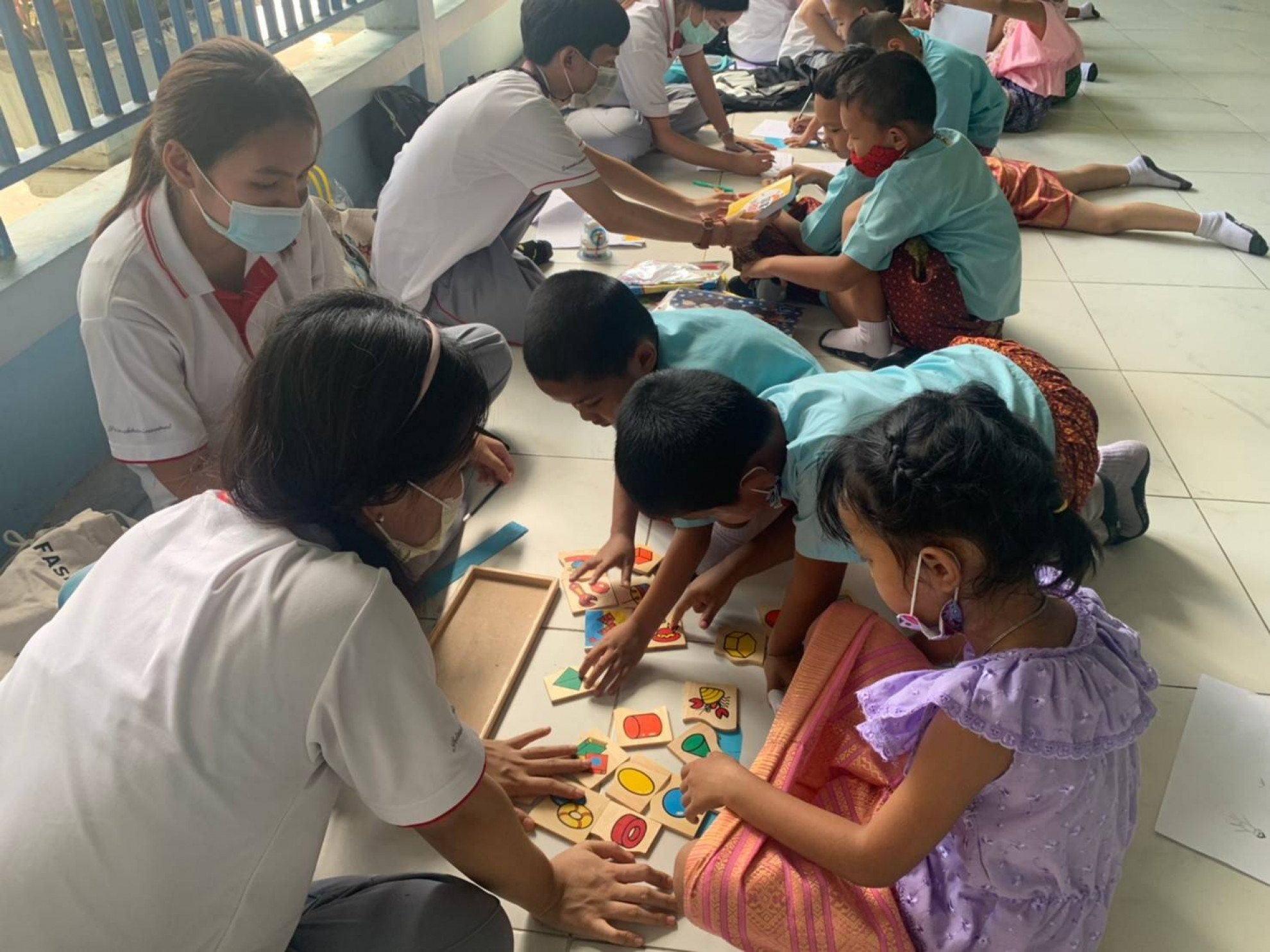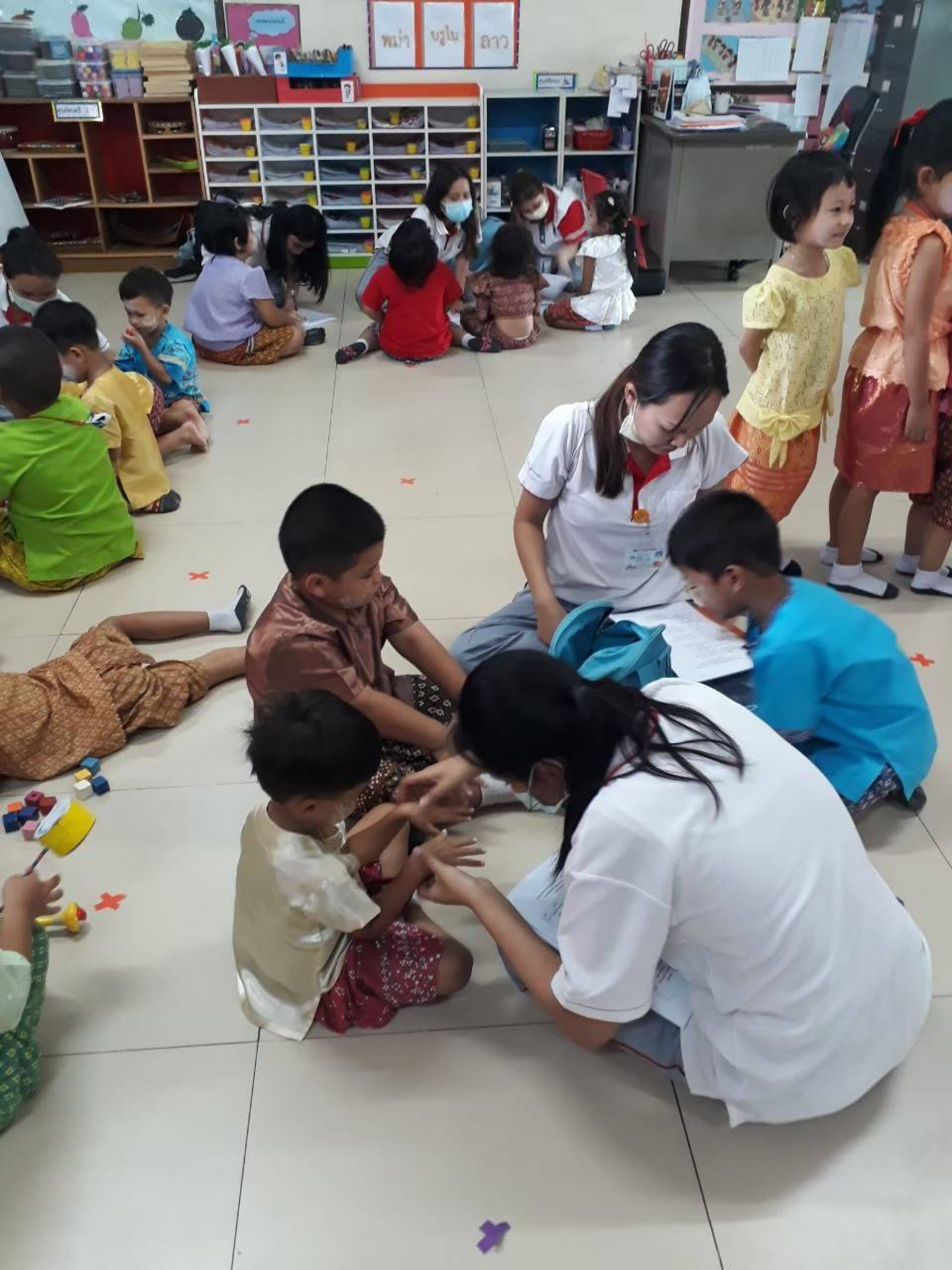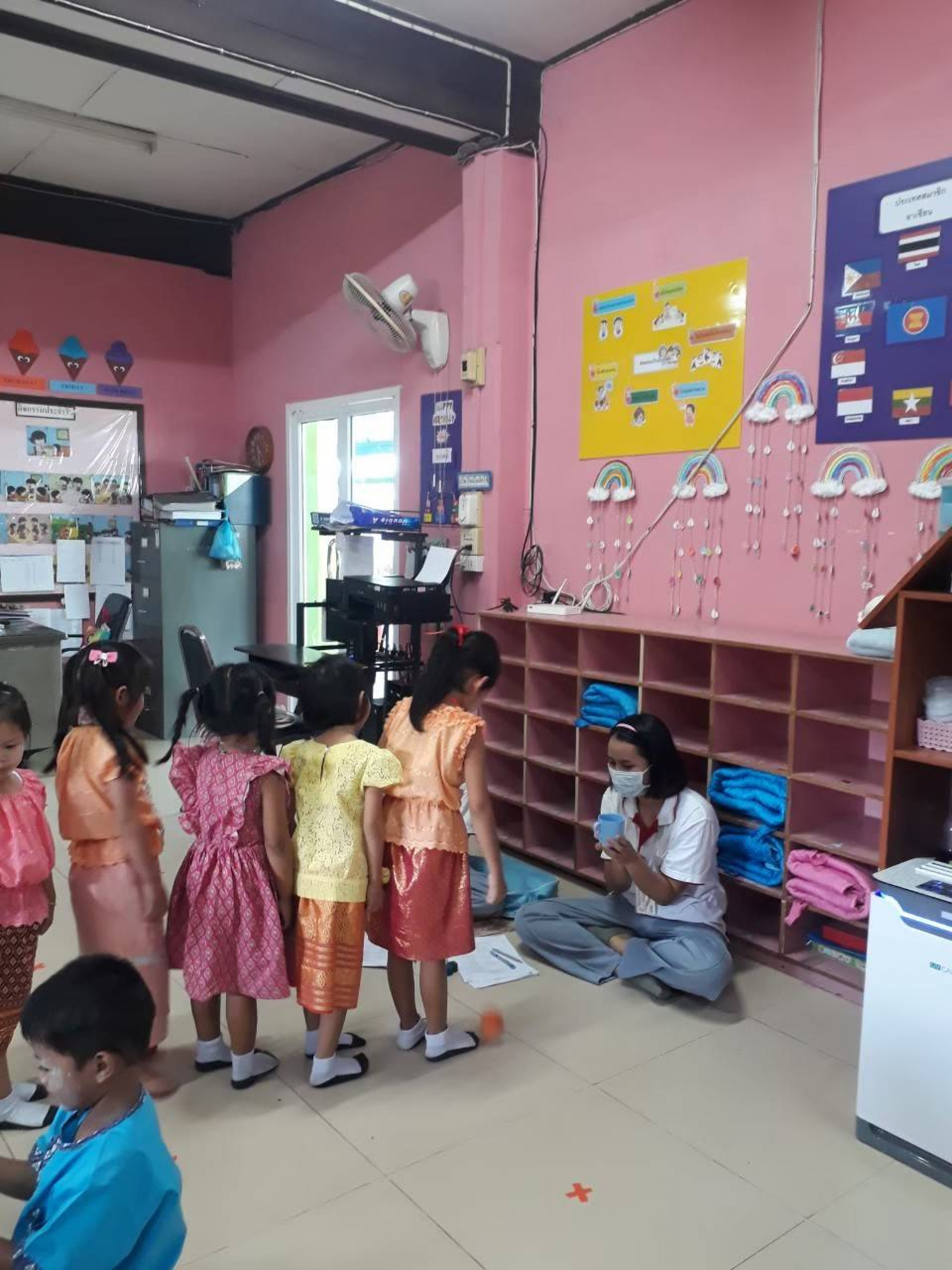





| Target | Indicator | Result |
|---|---|---|

SDG 2
ZERO HUNGER
|
||
| 2.2 By 2030, end all forms of malnutrition, including achieving, by 2025, the internationally agreed targets on stunting and wasting in children under 5 years of age, and address the nutritional needs of adolescent girls, pregnant and lactating women and older persons | 2.2.1 Prevalence of stunting (height for age <-2 standard deviation from the median of the World Health Organization (WHO) Child Growth Standards) among children under 5 years of age | From 250 subjects, we found malnutrition and delay growth development about 26 % and 3%, respectively and have tooth carries 10%. |
| 2.2.2 Prevalence of malnutrition (weight for height >+2 or <-2 standard deviation from the median of the WHO Child Growth Standards) among children under 5 years of age, by type (wasting and overweight) | From 250 subjects, we found malnutrition and delay growth development about 26 % and 3%, respectively and have tooth carries 10%. | |
Creating well-being and good development in early childhood is a window of opportunity to develop human resources to be viable over the course of their lives. Children are growing and developing. Children who receive inappropriate upbringing often have malnutrition and have effects on the body and brain. Children who do not receive look good healthcare will have abnormal development from the beginning will continue to burden society. Recent data show that some early childhood children have delays in development above the average threshold cause form parents knowledge insufficiency and socioeconomic situation have changed. As a result, children are not getting well in health and development as they should. Improving the quality of health care and promoting early childhood development by providing families with health literacy in health care and child development to make early childhood healthy, knowing, thinking, knowing how to make decisions, knowing how to direct themselves to success, and dealing with the dynamics of the world in the 21 th century and being able to lead the country to Thailand in the 4.0 era.
We found the under-5 years have mild malnutrition and refer to parents and teachers. 30 % Tooth caries and other problems such as nid, wound and poor hygiene that we found and report to their parents and teacher to take care and prevent these problems. For the exclusive function, 10 % of the children have a problem in attention and flexible function that need the teacher and present for taking care and make activity to promote usually.





